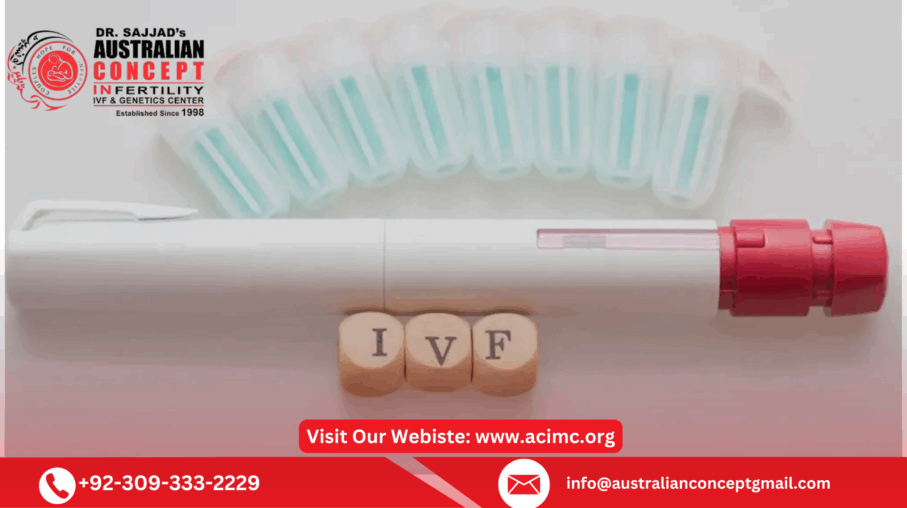Introduction
In Pakistan, thousands of couples turn to in vitro fertilization (IVF) as a beacon of hope in their fertility journey. But while medical advancements have made IVF more accessible and effective, one often-overlooked factor can silently undermine success stress.
Infertility itself is emotionally taxing. Add to that the financial, physical, and societal pressures especially in countries like Pakistan and stress levels can soar. But what many don’t realize is that emotional distress doesn’t just affect your mood; it may also influence your IVF outcomes.
Let’s explore how stress levels impact IVF success rates in Pakistan, the science behind it, and how to manage it for better results.
The Connection Between Stress and Fertility
Stress is a natural emotional and physical response to difficult situations. However, chronic stress triggers a chain reaction in the body that can interfere with reproductive functions.
Here’s how stress affects fertility:
-
Disruption in Hormonal Balance: Stress increases cortisol levels, which can interfere with the release of reproductive hormones like estrogen and progesterone.
-
Irregular Ovulation: Women under constant stress may experience disrupted ovulation cycles or reduced egg quality.
-
Poor Uterine Environment: Stress-induced inflammation may reduce endometrial receptivity, affecting embryo implantation.
-
Reduced Sperm Quality: In men, stress is linked to lower sperm count, reduced motility, and increased abnormalities.
In IVF cycles, where timing, hormone levels, and embryo implantation are tightly controlled, stress can subtly yet significantly affect outcomes.
Stress and IVF in the Pakistani Context
In Pakistan, IVF treatment is not just a medical decision—it’s often influenced by deep-rooted social expectations and family pressure. Some common stress factors include:
-
Cultural pressure to conceive early in marriage
-
Financial burden of treatment (IVF is costly and not widely covered by insurance)
-
Limited emotional support due to stigma
-
Multiple failed attempts without understanding the underlying issues
These stressors are more than emotional—they can become physical obstacles in the success of IVF cycles.
What the Research Says
Several global studies have investigated the link between stress and IVF success:
-
A study published in Human Reproduction found that women with higher stress levels had significantly lower pregnancy rates.
-
Another analysis revealed that women undergoing psychological support or relaxation techniques had higher success rates than those who did not.
Though specific studies on Pakistani populations are limited, anecdotal evidence and clinical experiences strongly suggest that mental health plays a role in outcomes.
Signs You May Be Experiencing IVF-Related Stress
-
Difficulty sleeping
-
Loss of appetite or overeating
-
Fatigue or constant worry
-
Irritability or mood swings
-
Avoidance of social interactions
-
Feelings of guilt or failure after unsuccessful cycles
Recognizing these signs early is key to managing them effectively.
How to Manage Stress During IVF in Pakistan
Reducing stress won’t guarantee success, but it may increase your chances by promoting hormonal balance and emotional resilience. Here are some effective ways to cope:
1. Seek Professional Counseling
Fertility counselors or psychologists can help process emotions and build coping mechanisms. Some fertility clinics in Pakistan now offer mental health services.
2. Practice Relaxation Techniques
Yoga, breathing exercises, or guided meditation can significantly reduce stress and promote mental clarity.
3. Join Support Groups
Connecting with other couples going through similar challenges helps you realize you’re not alone. Online or in-person support groups in cities like Lahore, Karachi, and Islamabad can be very helpful.
4. Communicate Openly With Your Partner
IVF can strain relationships. Talk honestly about your fears and hopes. Mutual support builds emotional strength.
5. Trust the Process
While IVF success rates vary, stressing over the outcome won’t help. Focus on each step, and allow yourself to hope without expecting perfection.
6. Consider Holistic Therapies
Acupuncture, aromatherapy, or even spiritual practices can help calm the mind and reduce anxiety.
Role of IVF Clinics in Reducing Stress
Leading IVF clinics in Pakistan are recognizing the importance of emotional well-being. Some now offer:
-
Pre-treatment counseling
-
Fertility education seminars
-
Personalized treatment plans to reduce uncertainty
-
Gentle protocols to minimize medication side effects
Choosing a clinic that offers emotional support can make a significant difference in how you experience treatment.
Final Thoughts
In short, stress affects both the mind and body in ways that can reduce the effectiveness of IVF. While stress won’t prevent pregnancy altogether, its role in disrupting hormones, ovulation, and implantation is clear. Managing emotional health through counseling, relaxation, and support networks is just as vital as taking medications or attending clinic appointments.
Couples who prioritize both medical care and emotional well-being often navigate IVF with greater resilience—and potentially higher chances of success.
For More Details: https://acimc.org/





